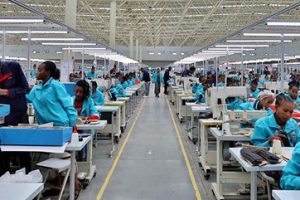
The Ministry of Mines accused cement industries for the frequent shortages of supply of products and related problems. It said that both the industries and producing associations did not pay the necessary attention to meet the market demand.
The Ministry sent letter to 14 industries and told them that due to lack of follow up by the administrative officials of the firms and capacity limitation of producing associations, shortage of products in the market has been a chronic problem.
The Ministry also informed that aiming to resolve the pervasive short supply of products; it made discussion with the concerned organs and announced the main findings.
The management and sectors’ leaders failed to deliver their responsibilities as per the demand. As to the Ministry, the cement factories with no reason are producing below their capacity. Some of them are also gave-up production with no planning and sufficient rational.
Due to paying insignificant attention, the cement industries are not developed as expected and their productivity has been shrunk.
Recently, the Minister of Mines, Engineer Takele Uma, ordered the industries’ officials to resolve the problems identified by overview studies and to produce cement in accordance with their full capacity. With regard to the security issues which were identified as key problems in the areas where the factories found and shortage of inputs, solutions will be forwarded with the consultation of the relevant federal and regional bodies.
A person who asked his name to be hold in anonymity from producing association said that the cement sector is facing crises after crises since long time ago. Hence, to redress the crises, every stakeholder should be part of the solution rather than blaming each other.
He further said that, the recent accusation by the Ministry with regard to the cement supply also is not acceptable. As to him, the shortage of supply witnessed currently is directly related with the security issues and the matter is clearly observed.
Factories should engage in quarry to obtain raw materials for 16 hours per day but due to uncertainty posed by frequent absence of peace in the areas, they engage only bellow 10 hours per day. One factory is closed because 25 of its workers were kidnapped while they were engaged in quarry in the nearby areas. Other factories also faced similar challenges. Only two factories are closed due to lack of inputs and the main problem that the sector face is the absence of durable peace due to the presence of armed groups engaged in destabilizing the vicinity of the factory compound.
The question why the security issue has become a recurrent phenomenon should be dealt by the security officials. Armed men engaged in clandestine activities in Oromia region should take responsibility for what is happening in the region with regard to the security. It is unknown whether armed men obtain information from the factories officials with regard to the production activities however, security officials should investigate the matter and take swift measures.
In general, the cement price hike witnessed currently in the urban centers posed by the gap between demand and supply due to the above mentioned problems. Hence, resolving the security issues should be taken as an urgent matter.
On the other hand, the effort that has been going on to substitute the imported coal which serves as inputs for cement production by local one is encouraging. Nevertheless, in similar way, the movement of armed groups in the surrounding areas of where the raw material is obtained hampers the activities and only limited amount of coal is reached to industries with higher price.
To resolve the problems related with cement products and to stabilize the investment and industrial production deterrent measures should be taken on armed groups who engage in violence activities in the region.
The government, investors, administrative organs and producing associations are the major stakeholders of cement products and production.
The cement producing association did not deliver as per its responsibilities. The association runs huge investment on the sector but it acts below its capacity to resolve problems arise in relation with the sector. Hence, it must exert its energy to safeguard the sector by whatever means. Nevertheless, it is understood that, ensuring security in the areas is not related with the objectives of the establishment of the association, the person suggested.
As expressed by its officials, The Ministry of Mines made its own effort to stabilize the sector which is encouraging and the association recognize its efforts to support the sector. The association also has an appointment to talk with the Ministry with regard to resolving the shortage of products.
According to some retailers and construction professionals, the situation of the cement industries in Ethiopia is correctly mentioned above and at the same time the price of cement in the market growing from time to time.
It is remembered that, last January in order to complete the construction in the speedy manner, the Ministry of Mine and Energy ordered cement industries to deliver 802,952 quintals of cement to the irrigation projects undergoing in the low land parts of the country.
The cement industries received money beforehand from customers to supply 2.6 million tons of cement but failed to keep their promise. As a result, the industries are indebted. Obtaining cement products takes long time and often customers complain about it. Unhealthy trade culture through extended value chain also posed cement price hike. Such cumbersome trade practice for long harms the sector and the construction workers in many occasions explained their worry. Currently, in Addis Ababa some retailers sold one quintal of cement from 900 to 1,000 Birr.
Idris Kedir is residing in Wingate areas engaged in retailing cement products. As to him, due to the high price hike of cement product, he was forced to close his shop.
He further said that sufficient amount of cement product is available in the areas locally known as Ashewa meda and Furi and one can purchase a quintal of cement by 900 to 950 Birr.
Indris also said that he was informed that the shortage of product is occurred because some cement factories have ceased production and others also produce below their capacity.
He further said that when there is a price hike, working in trade business is not inviting that is why he gave up retailing the product for the time being. When the factories begin production in their full capacity, he will hopefully look to restart his business.
The construction sector is one of the booming industries that plays crucial role in job creation which has great demand for products of cement factories. Ranging from mini personal building to mega projects such as dams and large infrastructure, the construction sector consumes millions of tons of cement. This necessitates collaborative endeavor to address the problem. It also optimizes demand for iron and still and wood products. This value chains is highly connected by cement products. Shortage of cement means interruption of the construction industry.
Ethiopia as a developing country, to attain economic growth and socio-economic progress, needs to construct more infrastructures such as roads, schools, educational institutions, health facilities, electric power dams and others. In this regard, cement product is essential. To meet the cement demand in the market, the government allowed the private sector to involve in cement production and to that end cement factories are expanding. New factories also are constructed.
Ethiopia has abundant natural resources including raw materials that can be used as inputs for cement production and this implies the sector can attract more foreign and domestic investments to boost the sector’s production. However, currently, due to the above mentioned problems, the nation is facing shortage of supply of cement products.
The main reason for scarcity of the product is the undeterred movement of armed gangs in the vicinity of the cement factories particularly in the Oromia region. Therefore, to resolve the security problem both the regional and federal governments should exert their energy to halt clandestine movements, it was learned.
BY ABEBE WOLDEGIORGIS
The Ethiopian Herald 3 April 2022




